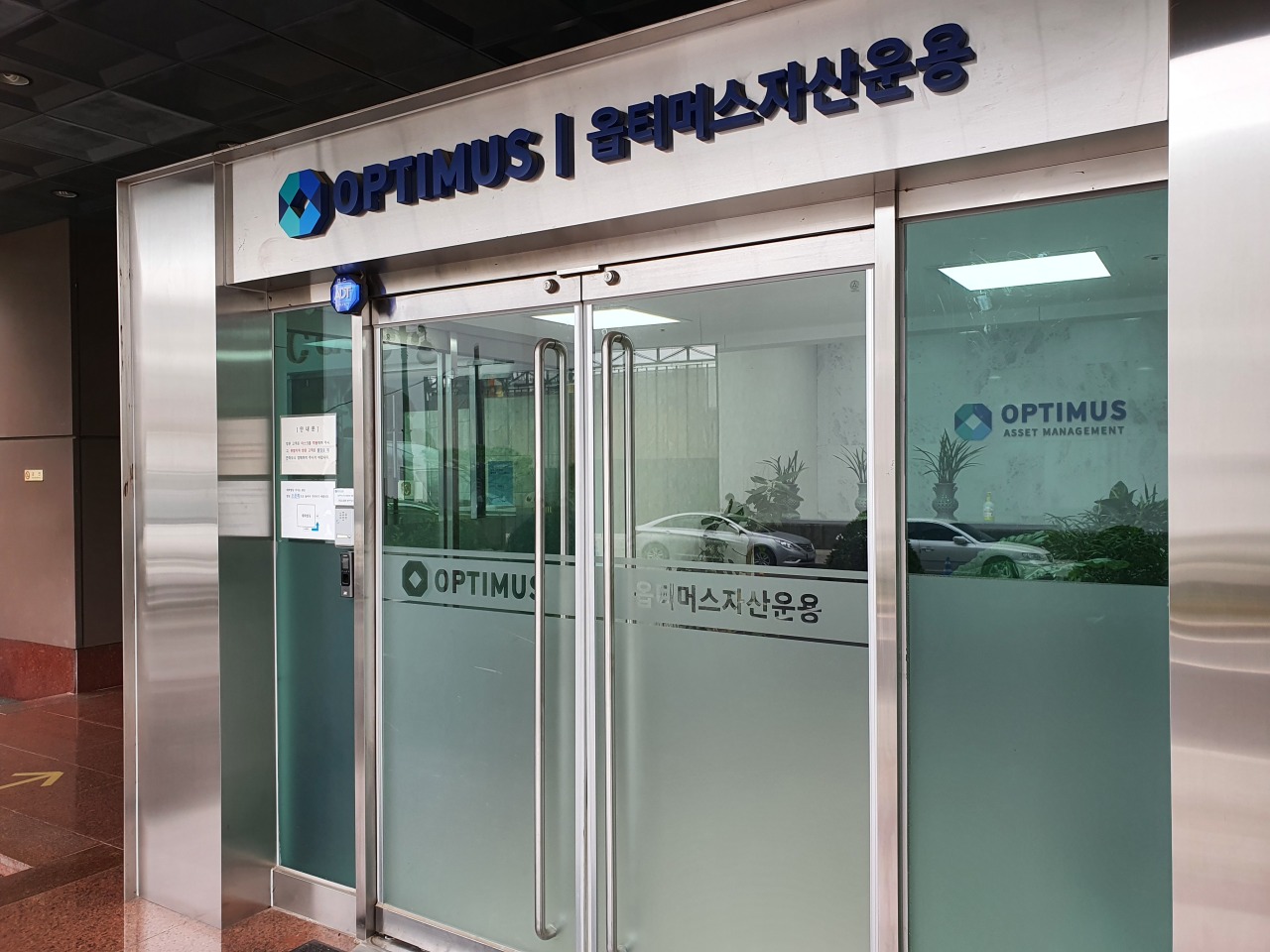South Korea’s Optimus Asset Management is being probed by financial authorities over allegations that it had breached contracts with fund investors in its portfolio construction.
Investors in the privately placed funds appear to be wary of what could trigger another financial fiasco following ones surrounding disgraced fund management firms including Lime Asset Management.
The Financial Supervisory Service on Friday launched an investigation on the Seoul-based investment house to examine whether Optimus’s fund carried out a dicey investment scheme without its investors’ consent -- deemed fraud in Korea. The probe is expected to take at least two weeks. In case the FSS manages to hold the evidence of fraud, the watchdog is expected to refer the case to prosecution.
This came as Optimus on Wednesday froze 38.4 billion won ($31.75 million) worth of two feeder funds a day before they reached the maturity date, citing its “legal trouble,” according to the fund sellers NH Investment & Securities and Korea Investment & Securities. Optimus was overseeing 535.49 billion won worth of funds as of end-March. Four out of five was sold by NH Investment & Securities.
Optimus raised the fund via 54 feeder funds that are meant to target trade receivables of companies dedicated to state-led construction projects. These financial products with a six-month maturity are designed to comprise at least 95 percent of the entire portfolio, according to the terms revealed by local media.
But Optimus is alleged to have invested in the debt securities issued by an undisclosed savings bank using the funds raised without prior notice to its investors. Optimus told media last week its legal partner in deal sourcing is to blame for the breach.
While Optimus, legal partner and fiduciaries are now passing the buck to each other to hold responsibility for the alleged fraud, the problem lies in the excessively loose regulation on privately-pooled funds, experts say.
“Small asset management firms were lacking internal control, while financial authorities have stopped short of addressing this matter,” said Cho Chang-hoon, professor of compliance and ethics at Hallym University of Graduate Studies.
Cho added savings banks’ declining profitability -- with the lowered upper cap in the loan interest rate -- is likely to have induced the investment firm and the savings bank to collude with each other.
This follows the financial fiascos surrounding privately sold funds in Korea, as more investors were failing to withdraw the principal amount and promised returns by the due date from asset management firms.
Financial institutions were allegedly engaged in misselling the products, as they have to make early repayments to investors in lieu of asset management firms and the risk of legal charges by the investors.
Lime Asset Management, once deemed the nation’s largest hedge fund manager, resumed in May the redemption of parts of its funds frozen since October, as two of the master funds’ value has shrunk by over half in the course of six months until April.
However, Lime’s other master funds, involved in a Ponzi scheme in the United States, are likely to be involved in a litigation by investors, as they are seeking damages from Lime and the fund sellers including Shinhan Bank.
Meanwhile, investors in Seoul-based Discovery Asset Management’s funds are demanding criminal charges against the fund manager and sellers.
Discovery has bought senior debt instruments of a special purpose vehicle, managed by troubled US investment house Direct Lending Investments, which was facing fraud charges since April 2019. The SPV’s fund went to consumer lending platforms in the US including Strategic Acquisitions, Quarter Spot and Forward Financing.
The state-run Industrial Bank of Korea, a major seller of Discovery’s funds, has offered to pay back 50 percent of the principal amounts to investors, only to face opposition that the offer is unilateral.
Some other fund investors are likely to seek fraud charges against Hana Bank, as the commercial bank attracted some 100 billion won investments in a vehicle, involving US-based Cross Border Investment Management. The vehicle is meant to buy the receivables associated with Italian hospitals’ sales owed to local health authorities, which turned out to be illiquid.
Hana Bank has also faced investor opposition. The investors’ representative said it plans to file a legal complaint against the bank.
By Son Ji-hyoung (
consnow@heraldcorp.com)








![[Weekender] Korea's traditional sauce culture gains global recognition](http://res.heraldm.com/phpwas/restmb_idxmake.php?idx=644&simg=/content/image/2024/11/21/20241121050153_0.jpg)